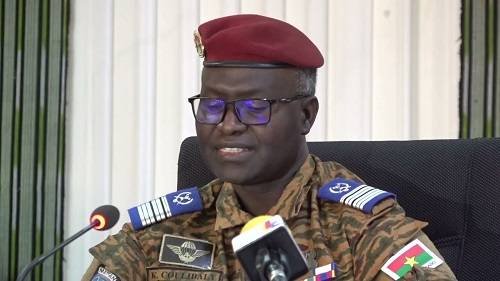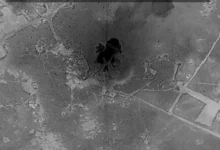Burkina Faso ‘mobilisation’ ramps up terror response

Burkina Faso’s military government has set a target of recapturing 40 per cent of territory lost to militant groups, announcing a “general mobilisation” to give them “all necessary means” to do so.
A statement on Thursday by Defence Minister, Colonel Major Kassoum Coulibaly, said the measures would “give a legal framework to all the actions to be implemented to deal with the situation that Burkina Faso is experiencing”.
It is thought it could include a state of emergency in parts of the country, although the full details of the guidelines are not yet clear.
The so-called “general mobilisation” also guarantees the government freedom of action to deal with terrorist threats. Burkina Faso’s Parliament passed a law in 2020 to recruit Volunteers for the Defence of the Fatherland, an auxiliary civilian army to support the fight against terrorists.
Burkina Faso has been embroiled in a jihadist insurgency since 2015. The violence has left more than 10,000 dead and displaced 1.8 million people.
Widespread anger at chronic insecurity in the West African countries of Mali and Burkina Faso paved the way for military men to kick out failing governments over the past two years.
“There’s no more room for mistakes,” said Mali’s coup leader as he seized power in August 2020. “We have more than what it takes to win this war,” echoed Burkina Faso’s new man in charge earlier this year.
In both countries, attacks by Islamist militants on civilians have only increased. The same is true of civilian deaths – more ordinary people are being killed by Islamists, militants and the military.
“The tallies for each year are increasing year by year,” says Héni Nsaibia, a senior researcher covering West Africa’s Sahel region for the Armed Conflict Location and Event Data project (ACLED).
Data supplied to the BBC by ACLED in June compares the 661 days before and after Mali’s coup in August 2020, and the 138 days before and after Burkina Faso’s coup in January 2022.
—BBC




